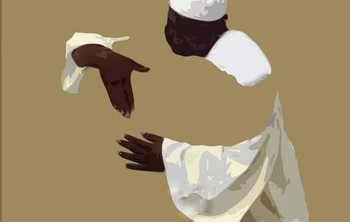Fate of unidentified bodies in Sudan mortuaries still not clear

File graphic
The Senior Public Prosecutor in Khartoum reportedly plans to bury dozens of unidentified bodies. The Sudanese Missing Persons Committee protests the burial of any unknown body before an Argentine medical team has arrived to conduct autopsies.
Lawyer Nasreldin Yousef, member of the Missing Persons Investigation Committee (MPIC), told Radio Dabanga from Khartoum on Monday, that they were surprised by reports circulating in news outlets about plans by the Public Prosecutor to bury dozens of unidentified bodies.
He said that a delegation of the MPIC plans to meet the Public Prosecutor on Tuesday to discuss the case. “We know that the situation in the mortuaries is more than miserable, but at the same time we reject any unannounced procedure that raise suspicion,” he said. “Any decision on the bodies must be done with the knowledge of the Missing Persons Committee.”
The Public Prosecutor informed the MPIC in a meeting 10 days ago that he would contact the Ministry of Foreign Affairs regarding procedures related to the visit of an Argentine investigation team, Yousef said. The prosecution earlier agreed on the idea of an independent medical team to investigate the unknown bodies in the mortuaries in preparation for their burial.
Lawyer Shawgi Yagoub, spokesperson for the Burial Without Justice campaign, told Radio Dabanga said that they will attend the meeting with the Public Prosecutor on Tuesday to discuss “the leaks related to the burial of dozens of corpses without prior notification”.
He explained that the relatives of the missing persons “want justice done, whatever it takes” and that “the Public Prosecutor agreed to their requests to bring in a specialised Argentine investigation team to conduct autopsies and other necessary examinations, as the families do not trust Sudanese forensic medics”.
Yafoub further said that “the authorities need to take temporary solutions to the problems of the mortuaries until the arrival of the Argentine team”.
‘Missing’
There are more than 3,000 unclaimed bodies in mortuaries in Sudan. Relatives of missing people in the country demand that the government agrees on DNA tests of the bodies before it takes any further steps.
The authorities however point to the miserable conditions at mortuaries in Khartoum, where power cuts lead to further decay and rats are reportedly “eating the corpses”.
In end August last year, the Senior Public Prosecutor announced plans to dig mass graves for the unidentified bodies in mortuaries without recording forensic details. The Central Committee of Sudan Doctors denounced the decision at the time, calling the move a “dangerous deviation from the protocols.”
Since the start of the 2018 December Revolution, Sudanese activists and protesters against the regime of Omar Al Bashir or the military junta, were often held and taken to unknown places. Many were later found by relatives or lawyers in detention cells, others had to be reported missing.
In August 2019, more than 100 Sudanese were still missing after what became known as the June 3 Massacre, when the sit-in in front of the Military Command in Khartoum was attacked. At least 40 bodies were found in the Nile following the attack. A young demonstrator was identified using DNA testing about four months after his body was found in the Nile tied to a block of concrete after the break-up of the sit-in.
Two months later, the Central Committee of Sudanese Doctors accused several hospital mortuaries of providing misleading information to the families of missing protestors. Staff at the hospitals reportedly denied that bodies were present at the morgues while in fact they were.
In in late 2020, during the civilian-led government headed by PM Abdallah Hamdok, the Public Prosecutor set up the MPIC, to investigate people missing, following the discovery of a mass grave in Khartoum. It was said at the time that the mass grave may contained bodies of some of the people who were reported missing following the June 3 Massacre.
‘Negligence’
In early 2021, medics performed autopsy and re-autopsy on 168 unidentified bodies in the mortuary of the Wad Madani Teaching Hospital in El Gezira.
Osama Abdelrahman, Assistant Director General of the Ministry of Health in El Gezira at the time spoke about negligence when the bodies were brought in and classified as ‘unidentified’. In the process of sorting the bodies in early 2021, 11 identity cards and other papers were discovered in their clothes.
Abdelrahman questioned the claim that the bodies decomposed when the cooling unit broke down a month before. He said that the condition of the bodies suggests that they have been decomposing much longer.
The bodies were received between 2019 and 2020. No further details were recorded.











 and then
and then